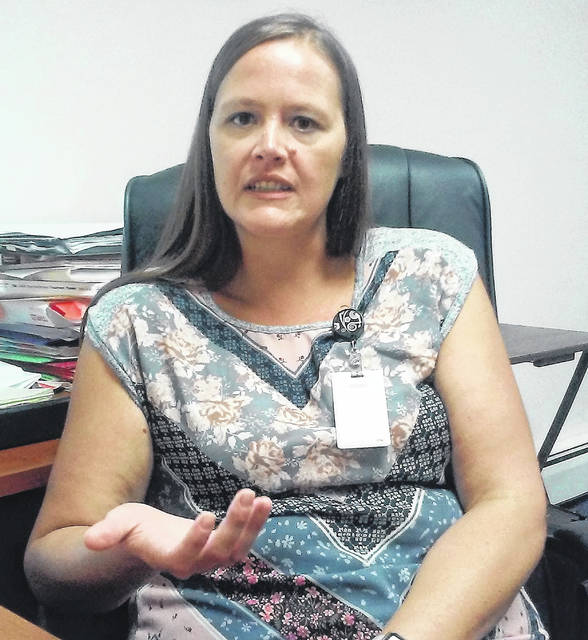
Thursday, Aug. 30 is National Grief Awareness Day, a day set aside to allow one to be mindful of those who have been affected by some form of loss.
The Rev. Jim Brock, pastor of New Beginnings Church in Sugartree Ridge, said grief is a fact of life.
“If you haven’t gone through it, you will,” he said. “It can be caused by the death of a loved one, a close friend. And I’ve even seen folks grieve over losing a job or a house.”
Gena Bates is the director of the Scioto-Paint Valley Mental Health Clinic in Hillsboro, and her advice is to not face it alone.
“If your grief becomes overwhelming to the point you just can’t handle it anymore, by all means, ask for help,” she said.
Bates said that there is still a stigma about going to a psychiatric social worker or clinical psychologist when the problems of life become crushing.
“That stigma isn’t just about grief alone, but mental health in general,” she said, “and one of the first things I tell patients as they walk through the door is ‘thank you for your bravery.’ It just amazes me that we don’t hesitate to go to the ER when we’re having chest pains, but we’ll stay home and suffer when grief seizes us and the walls start crashing in.”
Bates told The Times-Gazette that mindset is typical of today’s individualistic “pull-yourself-up-by-your-own-bootstraps” culture.
“We do the wake and all the rituals that go along with someone dying, and your job gives you three days off, and we’re expected to bounce back and things are just fine… only they’re not just fine, everybody grieves differently and it may take a while to get back to normal,” she said.
Bates added that there are typically seven stages to grieving.
Shock, denial and anger are the first three — where a person goes from “this can’t be happening” to reality setting in and the real pain of the loss becoming evident, she said.
The fourth step, bargaining, is the step that pastors like Brock come across the most.
“I’ve had people tell me they’ve made every deal they could with God,” Brock said, “and even though deep down they know you can’t bargain with him, it’s their way of coping with what they’re going through.”
Step five, according to Bates, is depression, where a person begins to fully comprehend the loss.
But grieving depression isn’t the same as clinical depression, she said.
“It’s all about functioning when you’re no longer able to do your daily routine, can’t go to work or go to school, lose interest in things that you normally would enjoy and it’s going on for a number of months, then you’re crossing the line into clinical depression, and you better get some help,” she said.
The last two stages in the healing process are testing and acceptance, where a person accepts what has happened, evaluates realistic solutions and starts to move forward in their life.
“Ultimately, that’s where I want to get them to,” Brock said. “Going through grief is rough, but if I can help with some sort of counseling from a spiritual standpoint, and get them to where they’re accepting the reality of the situation, then they can get on with their life.”
Dr. Earl Grollman has authored many books on grief and bereavement and is recognized as a pioneer in the field of crisis intervention.
In one of his works, the 93-year-old rabbi stated, “grief is not a disorder, a disease or a sign of weakness… it’s an emotional, physical and spiritual necessity.”
Bates agrees, adding there can be health consequences for not allowing one to grieve or repressing the grief process.
“Our brain is a part of us, just like our heart, lungs and kidneys,” she said. “And what is happening in your mind impacts the rest of your body. You can feel how your body is reacting to stress because there is a brain-body connection, and you can sense that your body is working harder to get through it, and that can cause problems down the road.”
When it comes to grief counseling, Brock’s approach is to simply listen.
“Sometimes the best thing to do is let them talk it out and give them a shoulder to cry on,” he advised. “The Bible tells us to weep with those that are sad, and rejoice with those who are happy.”
Reach Tim Colliver at 937-402-2571


